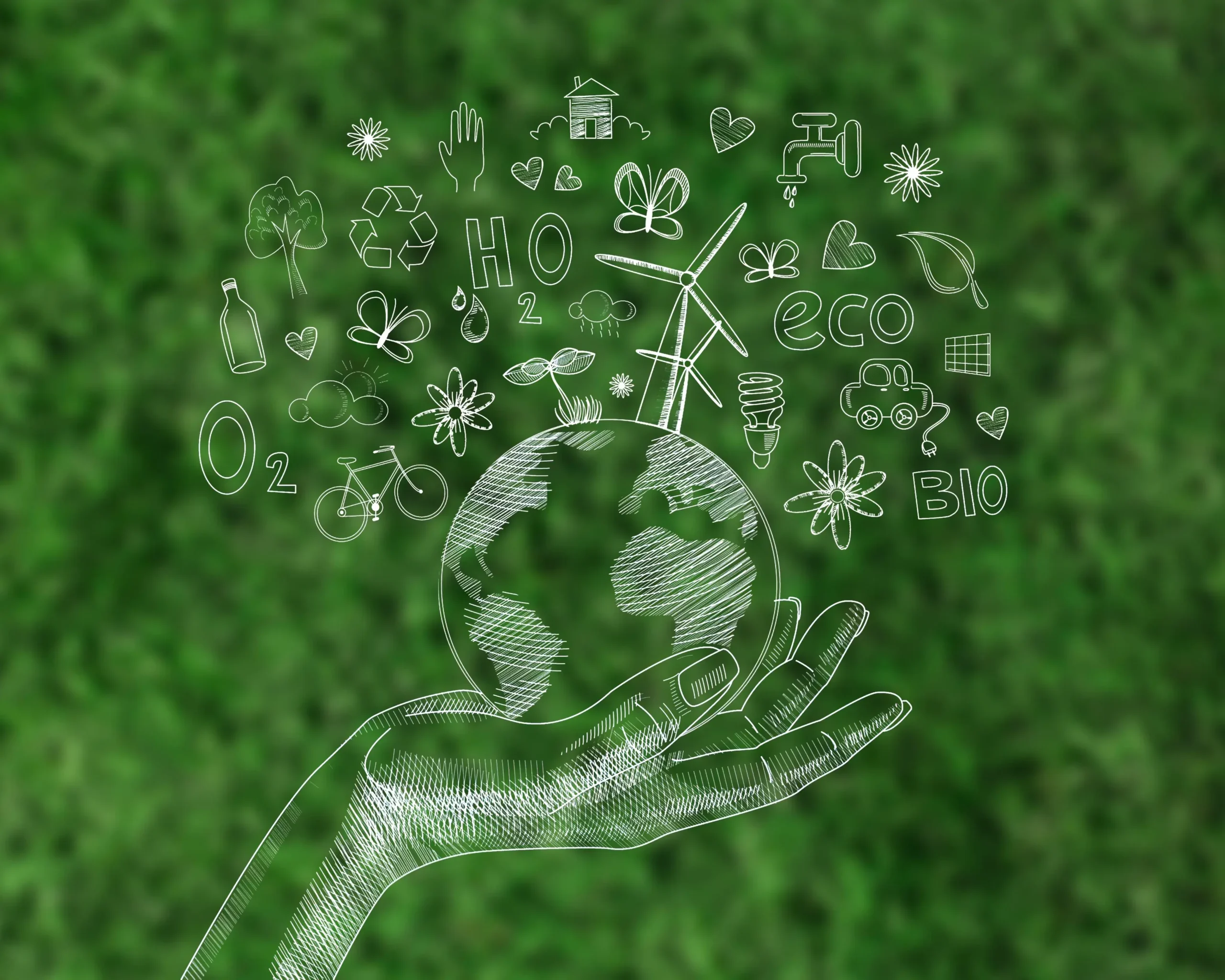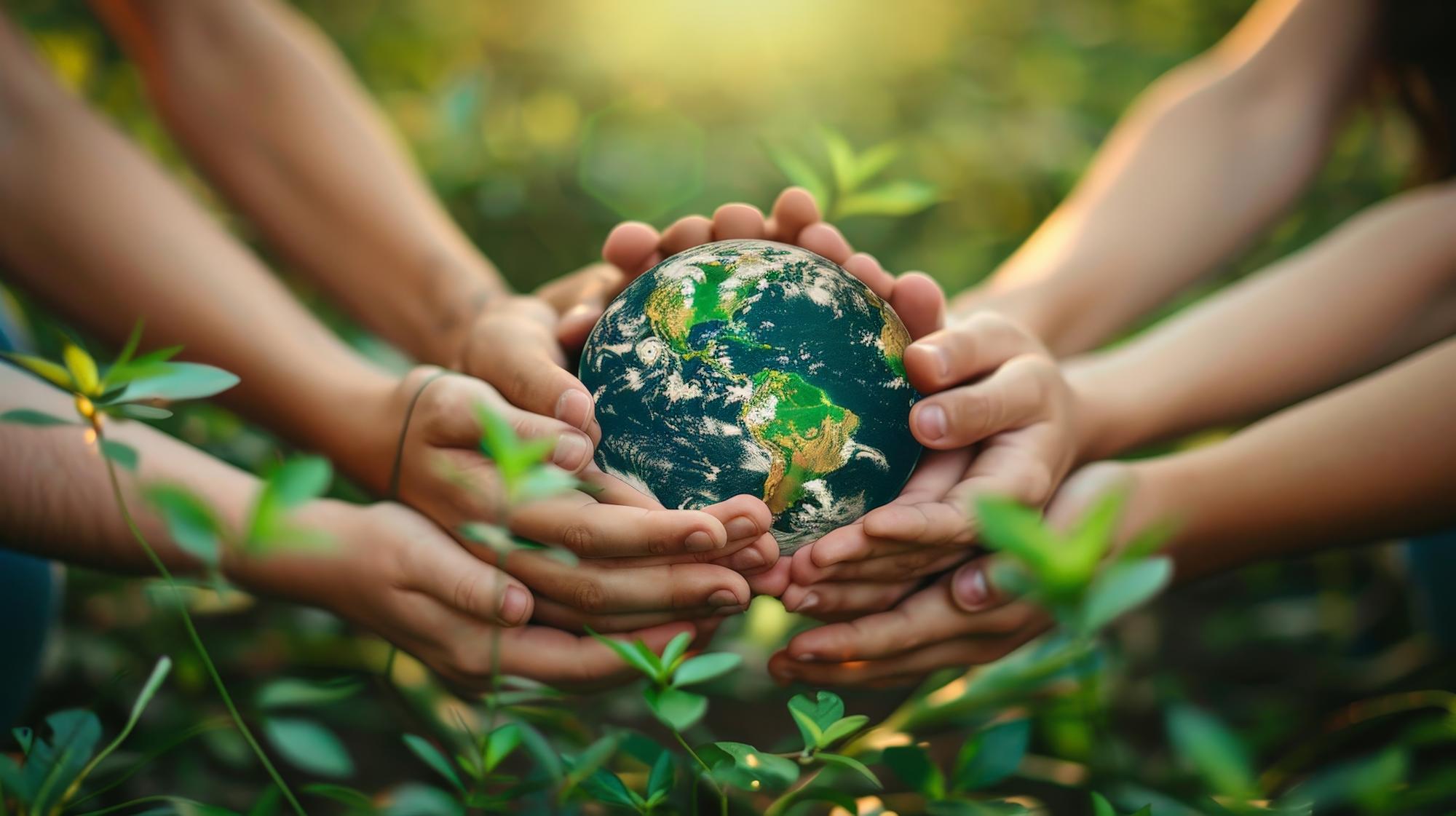- sustainability
- Health and Environment
Health and Environment
View the video
Educating consumers on the proper use of products and the importance of recycling is part of our commitment to environmental protection. At Raga Parsian Plast, preserving the environment is a top priority. We strive to reduce pollution and improve quality of life by implementing eco-friendly production methods and minimizing plastic waste. Our goal is to lessen the environmental impact of polymer products through recycling and reusing materials.
Reducing our carbon footprint is essential in combating climate change and minimizing the environmental impact of human activities. A carbon footprint represents the total greenhouse gases (GHG) emitted directly or indirectly by an individual, organization, event, or product. These emissions are typically measured in carbon dioxide equivalents (CO2e), accounting for the varying effects of different greenhouse gases.
Recycling is a vital process for reducing pollution and conserving natural resources. By recycling used materials, we can significantly decrease the accumulation of waste and minimize the need for new resources. This process not only reduces energy consumption and greenhouse gas emissions but also lessens negative impacts on ecosystems and the environment. Recycling allows materials to re-enter the production cycle, making resource use more efficient. As a result, recycling is recognized as one of the most effective solutions for environmental preservation and reducing the harmful effects of waste production on the planet.
Energy consumption and greenhouse gas emissions are major contributors to climate change and environmental pollution. Every production and consumption activity requires energy, most of which is sourced from fossil fuels. This results in greenhouse gas emissions, such as carbon dioxide (CO2) and methane (CH4), which contribute to global warming and climate change. Reducing energy use and optimizing resource efficiency can help lower greenhouse gas emissions and mitigate their adverse environmental effects. For this reason, shifting towards renewable energy sources and low-energy production methods has become essential in the fight against climate change.
Water treatment is essential for safeguarding human health and the environment. Natural water sources may contain pollutants, harmful chemicals, and microorganisms that pose risks to humans and wildlife. Water treatment plays a crucial role in ensuring clean, drinkable water by removing contaminants and enhancing water quality. This process is not only vital for drinking water but also for industrial and agricultural applications, as purified water improves efficiency and reduces negative environmental impacts. Water treatment is a fundamental part of efforts to protect water resources and minimize the environmental damage caused by water pollution.
How We Can Help Health and the Environment
Save Energy
Turn off lights, appliances, and electronics when not in use.
Sustainable Transportation
Whenever possible, opt for electric or hybrid vehicles instead of traditional gas-powered cars.
Water Conservation
Turn off the tap while brushing your teeth, and fix leaks immediately.
Sustainability

Resource Efficiency:
Maximizing the use of resources by reducing waste and optimizing processes to conserve natural resources and minimize environmental impact.
More

Consumer Education and Engagement
Educating consumers on responsible product use and encouraging recycling to support environmental sustainability.
More

Social Responsibility
Commitment to positively impact society and the environment through ethical practices and community support.
More
